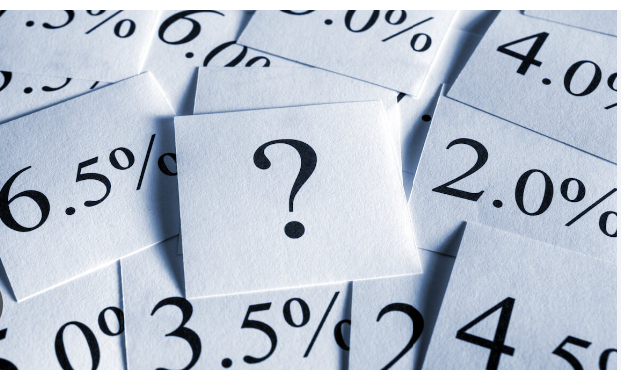The spread between the official exchange rate is opening wide vs “the market rate”, as measured by transactions in Istanbul’s ancient “curb market” at Closed Bazaar (Kapalicarsi). It is safe to say that Central Bank interbank quoted exchange rates became dysfunctional. Business people dealing with foreign trade are confused about what to do. ‘What interest rate?’ ‘Which currency quote?’, are they asking, as uncertainty began hurting trade.
Turkish financial markets have been sucked into a vortex, such that there is an official market in one place and an informal market in the other. Trying to beat the Impossible Triad of Economics (i.e. determining both foreign currency and interest while capital movements are free), Turkish markets experience anomalies from time to time due to the bottlenecks in financing the balance of payments. Recently, the gap between the foreign exchange prices in the Grand Bazaar and the foreign exchange prices in the interbank market have been in the headlines.
But the dual currency situation is not new. We experienced similar events in July and September last year. It’s not new, but it’s not normal either.
BUSİNESSES HARD UP FOR FX
Flows from Russia-Ukraine War, stricter regulations regarding the foreign exchange market and incoming tourist trade made the Grand Bazaar market king in foreign exchange dealings, again. That segment of the business world, which is engaged in foreign trade, bearing foreign exchange risk, turns to the Grand Bazaar when they cannot procure enough foreign currency from the banks. “Who is chasing currency in the Grand Bazaar?” we wrote during the week. Upon our article, the manager of a famous ready-made clothing company responded by sending a message “I”. There is a difference of 30-35 kuruş (TL1 = 100 kuruş) between the indicative rates published by the Central Bank and the Bazaar. There are also those who claim that the actual spread widens during the day to 2.5-3 percent. Business people dealing with foreign trade are uncomfortable with this situation.
Especially the difference between the foreign exchange selling rates of banks and the Central Bank’s benchmark rate makes it difficult to quote prices. A businessman who is active in trade and production of electronic goods reproached, “We want to know at what currency rate we will buy and quote prices. We look at the Central Bank rates and aet prices. When it comes to buying FX from banks, there is a gap between official quotes and the rate at which they are willing to sell FX.
DOLLAR SOARS PAST 20 TL IN INFORMAL MARKET
As of Friday, if you want to buy foreign currency from one of Turkey’s five largest banks, the dollar rate is 20.10 TL. It was 19.77 TL on Thursday. The highest selling rate on the interbank quotation screen on the same day is 19.40 TL. There’s definitely something wrong here.
As FX needs overwhelmed banks and its meagre reserves, Central Bank decided that Turkish lira-settled forward FX transactions could be carried out directly with banks that wish to transact, in order to increase the variety of instruments and overcome the squeeze in the foreign exchange market without losing control of the market rate. Banks will forward their transaction requests to the Foreign Exchange Markets Directorate by the persons authorized to transact in the foreign exchange markets and by telephone.
The Central Bank has been holding TL-settled foreign exchange selling (forward) auctions since 2017. As of February last year, we saw that these tenders were terminated due to lack of demand. This time, banks were given the right to operate directly.
TURKEY ENTERS MULTIPLE RATE WORLD
While the foreign exchange market is in a tumultuous state, interest rates are no different. The policy rate of the Central Bank is 8.5 percent. The interest rate (dimple yield) on the 2-year government bonds traded in the market was 15.55 percent this Friday. It went up to 16.61 percent on April 12. Definitely a mismatch. According to the data in the Central Bank EVDS system, as of April 7, the 3-month deposit interest rate is 28.96 percent. Commercial loan interest rates are 15.80%, while consumer loan rates are 28.82%. It is clear that the policy rate is out of date. As we reported in our newspaper on April 5, there are industrialists who have been offered 35.5 percent for TL deposits.
Even stranger is the situation, when businesses with foreign currency savings and TL cash assets want to use credit. The banks are called from Ankara and they are instructed not to give credit to these presumably cash rich companies, according to Dr. Öner Günçavdı, who wrote in his article titled “Traces of politics in accessing low-interest loans” published on the website PolitikYol on April 3rd.
Economist Ali Ağaoğlu, in his 2023 interview with İHBİR News, said, “Nobody knows the interest rate on the Turkish lira in Turkey at the moment. Every bank, each branch has a different interest rate. You cannot make any financial plans at all, when loan and deposit rates are a mystery. Neither currency nor interest risk can be managed nor hedged, nothing can be done. CFOs, bosses, financial managers, no one can make a decision unless the signage rate and the market are united.”
Republished from Aydınlık.com.tr with the permission of author Recep Erçin
Follow our English language YouTube videos @ REAL TURKEY: https://www.youtube.com/channel/UCKpFJB4GFiNkhmpVZQ_d9Rg
And content at Twitter: @AtillaEng
Facebook: Real Turkey Channel: https://www.facebook.com/realturkeychannel/
